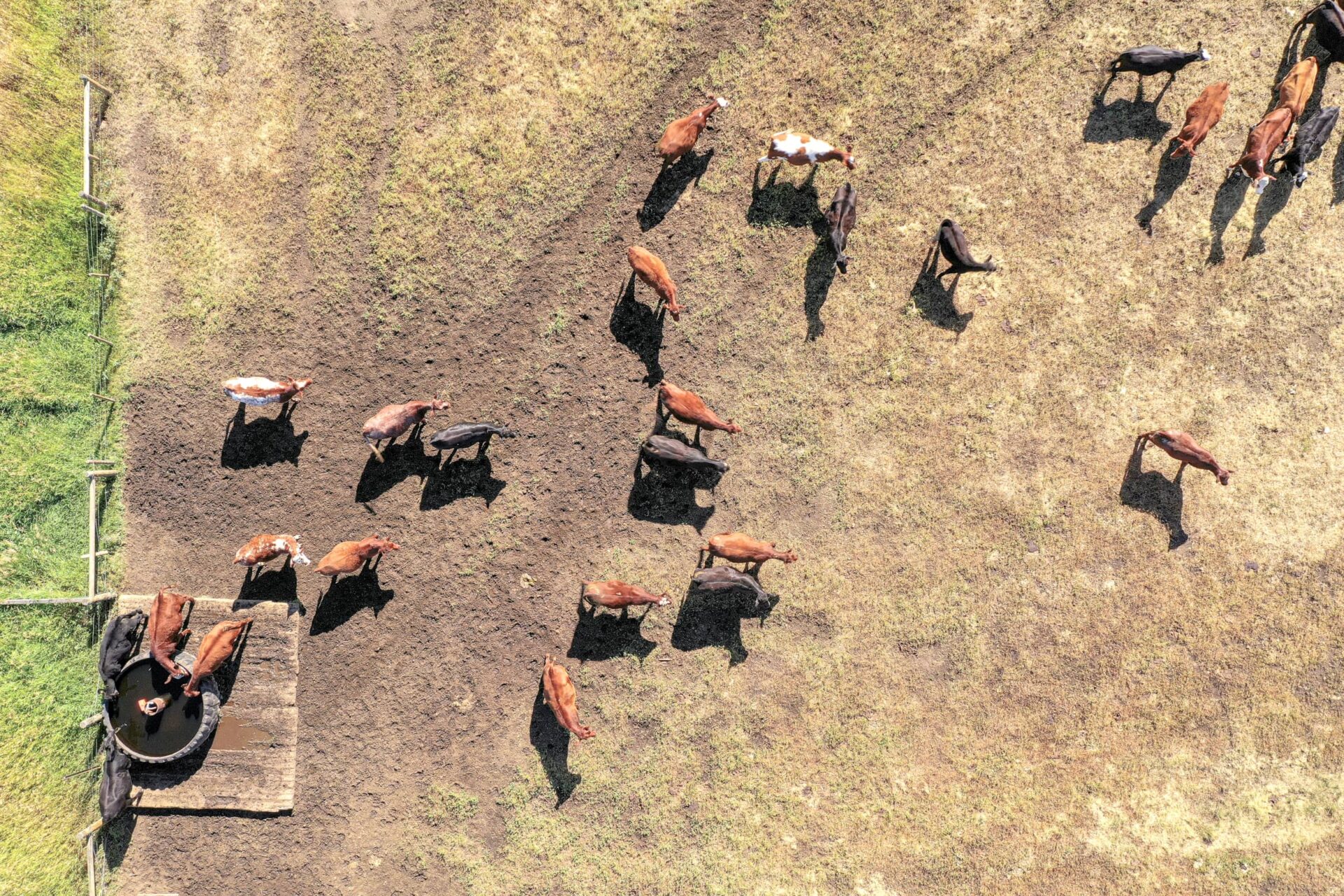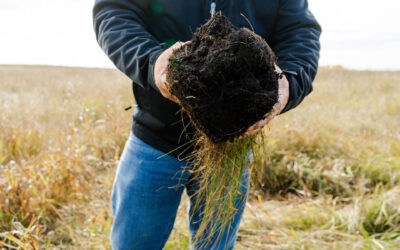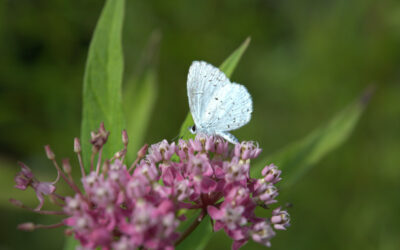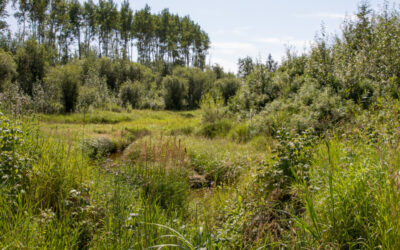
An ALUS participant gets close to thier herd.
Climate change is often considered the greatest collective challenge we face. While at times overlooked, agriculture offers one solution to address this challenge—the way we produce food can be a powerful lever against the impacts of climate change. For almost two decades, ALUS has seen the crucial role beef ranchers and their cattle play to not only address climate change, but also improve Canadian ecosystems and communities.
Recognizing this potential, A&W Canada and Cargill have collaborated to create Grazing Forward, to support ALUS and expand its New Acre™ Project, which helps farmers and ranchers accelerate agricultural practices to promote healthy grasslands, improve wetlands, create wildlife habitat and protect species.
Through Grazing Forward, ALUS will take a hands-on, local approach, working with interested Canadian beef ranchers to plan and implement practices that contribute to environmental outcomes, including improved soil health and water quality, increased biodiversity and plant growth. Grazing Forward will impact more than 6,000 acres and engage ranchers in 20 communities, extending the New Acre Project’s current reach by 233%.
 The cattle of an ALUS participant.
The cattle of an ALUS participant.
“The ALUS program helps us implement our vision for the future of beef. With new approaches to ranching, we can run an eco-conscious, quality-driven operation using an Angus-based cow herd, advanced grazing management techniques, a superior herd health program and a kinship with the land we operate on,” says Sean McGrath, fifth-generation family farmer with Round Rock Ranching.
Highlights of the collaboration include:
- A&W Canada and Cargill will together provide $1.8M CAD ($1.5M USD) to support ranchers in Alberta, Saskatchewan and Manitoba as they continue to scale regenerative agriculture practices that capture carbon dioxide, in addition to supporting the long-term sustainability of ecosystems.
- Through ALUS’s program, “regenerative agriculture” describes farming and grazing practices that, among other benefits, can help mitigate climate change by rebuilding soil organic matter and restoring soil biodiversity — resulting in both carbon drawdown and improved water cycles.
- The project is expected to sequester up to 12,578 MT greenhouse gas emissions per year, equivalent to more than 51 million kilometres (31 million miles) driven by the average passenger vehicle, according to the EPA.
- Supporting the long-term success of the land, participants and local communities is critical for the program. Ranchers who participate will receive extension services and technical guidance for project implementation and maintenance. Additionally, participants are eligible to receive cost-sharing and annual per-acre payments, helping to ensure there is an economic path forward and support systems are in place to set each participant up for success.
- Through Grazing Forward, local engagement guides local impact. Implementation is supported at the local level by Partnership Advisory Committees consisting of farmers, municipal leaders and key stakeholders. These committees guide program activities to ensure they address local priorities, such as watershed management and protection of wildlife species.
About ALUS
Community-developed and farmer-delivered, ALUS (Alternative Land Use Services) is a charitable organization that sustains agriculture and biodiversity for the benefit of communities and future generations. ALUS provides direct financial and technical support to a network of farmers and ranchers who deliver ecosystem services in their communities, such as cleaner air, cleaner water, carbon sequestration, erosion control, flood mitigation, pollinator support and wildlife habitat. ALUS’ New Acre Project helps corporations exceed sustainability objectives by supporting farmers and ranchers to build nature on their land. Learn more at newacre.org and ALUS.ca.
About A&W Canada
At A&W, we know that it takes great ingredients to make a great tasting burger. All our beef is grass-fed, and raised without artificial hormones and steroids. We’re on a journey to exclusively source and serve 100% Canadian, grass-finished beef at our restaurants. We are committed to working with Canadian producers to grow Canada’s grass-fed and finished beef market. As part of this work, we invest to champion the growing regenerative agriculture movement in Canada, collaborating with partners across the beef supply chain to make useful tools and resources available to Canadian ranchers. For more information, please visit aw.ca/canadiangrassfedbeef.
About Cargill
Cargill’s 155,000 employees across 70 countries work relentlessly to achieve our purpose of nourishing the world in a safe, responsible and sustainable way. Every day, we connect farmers with markets, customers with ingredients, and people and animals with the food they need to thrive. Through the BeefUp Sustainability initiative, Cargill aims to reduce greenhouse gas emissions throughout the company’s North American beef supply chain by 30 percent by 2030. Learn more at beefupsustainability.com and cargill.com.



